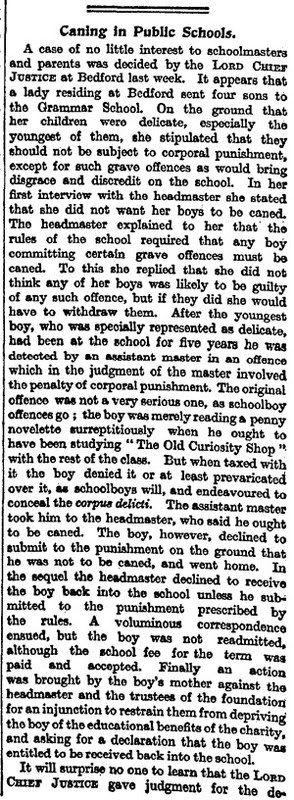City Education Committee.
-
Master’s Right to Cane
Daily Mail, London, 24 April 1929, p.9 . Smoking Boy Case Again in Court. Judge and “Taking it Like...
-
Caning in Public Schools
The Times, London, 8 February 1910 . A case of no little interest to schoolmasters and parents was...
-
Girl in Slacks Caned
Daily Mirror, London, 18 October 1939, p.5 The mother describes the punishment in a letter she has written to...
-
An Eton Mystery
The Marlborough Express, New Zealand, 26 November 1907, p.6 . Etonians all over the world will learn with surprise...
-
Caned boy’s summons
Daily Mail, London, 13 August 1928, p.8 In the courts. Prefect’s defence. Father withdraws case. John King Day, aged...
-
To Cane Or Not?
The Times, London, 19 March 1921 Headmaster of Rugby’s Views At a meeting held on February 15 the members...
-
Chastising Schoolboys.
Daily Mail, London, 8 May 1903 “It is news to me,” remarked the magistrate, “that a schoolmaster may not...
-
Corporal Punishment
March 1907 Statement Issued by Mr. Paton. Click to enlarge We have received the following copy of a letter...


